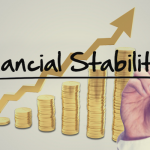You may have every intention of running a sparkling business with great customer service, excellent products, and more. Yet then you go to sign up with a payment processor and find out that they’re designating you as high-risk, meaning that they’re going to charge you higher fees and may require you to hold more money in your reserve accounts. What gives? Unfortunately, some industries are considered “high-risk” and even the best companies operating in those industries may have to put up with increased fees.
Businesses in high-risk industries may face other hurdles as well. They might struggle to obtain insurance and loans, for example. For companies operating in high-risk industries, certain risks can also push costs higher. For example, a high-risk company may be more likely to get hit with chargebacks. Let’s take a closer look at why entire industries may end up designated as high-risk.

Why Are Some Industries Recognized as high-risk?
Like any business, payment processors, insurers, and lenders are looking to generate a profit. If your industry is designated as high-risk, it’s not personal but simply a matter of business. Unfortunately, companies operating in certain industries will face increased risks owing to various factors.
Consider chargebacks, for example. With chargebacks, a cardholder can go to their bank and ask that funds from a debit or credit card purchase be returned to them. Chargebacks are enshrined into law in the United States and many other countries, and they’re designed to protect customers from fraud, such as someone stealing a credit card and making an unauthorized purchase.
Unfortunately, chargebacks are a major burden for businesses and payment processors. For a payment processor, managing chargebacks is a hassle. Among other things, they have to dedicate staff to manage the chargebacks and may have to reverse payments. All of this creates burdens for the payment processors. As such, many processors would rather avoid chargebacks. So if a particular industry is prone to a lot of chargebacks, they may decline to work with companies in that industry or may charge higher fees.
Further, chargebacks may make a company less stable. The organization hit with chargebacks will lose revenues and have to pay fees. From the point of view of lenders, the burdens caused by chargebacks may make the borrower less likely to repay their loans. As such, the lender may refuse to extend a loan or may charge higher interest rates to account for the increased risk.
Potential legal complications are another reason companies can end up designated as high-risk. For example, companies selling vape products or anything related to cannabis may be designated as high-risk. The potential for legal headaches and liabilities, along with potential industry turmoil, increases liabilities for both the company and the processor.
Industries Commonly Considered high-risk
Ultimately, payment processors can dedicate industries and businesses as high-risk as they see fit. Some merchants specialize in working with high-risk companies, although they often charge higher fees. Some general payment processors will work with high-risk industries, but they may demand higher fees.
Some industries often designated as high-risk include:
- Travel/Tourism- Tend to face high chargeback rates and cancellations.
- High-value or International e-commerce: The risks associated with fraud are high in e-commerce and big-ticket items are especially risky.
- Gaming: High rates of fraud and chargebacks.
- Gambling: High rates of fraud, chargebacks, and legal complications, which often vary by jurisdiction.
- Pharmaceuticals: Legally complex environment.
- Cannabis/CBD: Especially legally complex.
Many other industries are designated as high-risk. Further, if you serve international markets, you may be designated as high-risk even if your industry isn’t designated as such in your domestic market.
Why and How Businesses Should Reduce Risks
Whether or not you’re designated as high-risk, you’ll want to reduce risks by preventing fraud and chargebacks and taking other steps to secure your business. Even if you’re not in a high-risk industry, if you incur a high number of chargebacks, your payment processor may demand higher fees and reserves. Further, if you do operate in a high-risk industry, you can sometimes negotiate fees on a one-on-one basis. If you can show that your business is less prone to fraud and chargebacks than similar companies, you may be able to negotiate a lower rate.
Fortunately, you can use a variety of tools, including dispute management platforms like Chargeback Help, fraud detectors, and chargeback alerts to reduce fraud and chargebacks. Good customer service and shipping tracking information, among many other measures, can also reduce chargebacks. Two-factor identification and address verification services (AVS), meanwhile, may help reduce fraud. Many other tools may help. What’s crucial is proactively and holistically managing risks.











